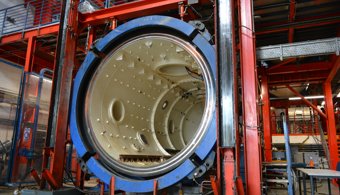
Coastguards and anti-pollution teams were put on high alert when the MSC Napoli was deliberately run-aground at Branscombe, off the Devon coast.
En-route to South Africa, the huge container ship MSC Naploi suffered serious structural failure during storm conditions 40 miles off Cornwall.
Fearing for his men, the Napoli’s captain gave the command that any ships master dreads when he ordered his crew to ‘abandon ship’. In spite of heavy seas, a helicopter from the Royal Naval Air Station Culdrose rescued all 26 crewmen.
An on-the-scene assessment of the stricken ship concluded that the least environmentally risky option was to tow it to a place of refuge in shallow UK waters. The need for a place of refuge and its location are always driven by the circumstances of an incident, by the type of threat posed by the vessel in question and also it’s cargo. Portland Harbour was selected and a tow attached. Severe weather continued, however, and in the early hours of January 20 2007 the expansion of large cracks on each side of the rear hull caused concern to the rescuers. It became clear that the 275 metre, 62,000 tonne vessel would not reach Portland.
A beaching site in Lime Bay was chosen yet, even though the shallower waters offered more shelter, eventually 200 of the containers were swept overboard with 57 being washed ashore. This latter event created a bizarre scene reminiscent of the 1949 film ‘Whiskey Galore’ as treasure seekers scavenged Branscombe beach for booty. Anything from barrels to BMWs and cosmetics to camcorders were taken while Devon police were forced to invoke maritime laws dating from 1854 to restore order.
Services provided:
Called ‘Jurassic Coast’, this part of the Devon and Dorset coastline is a World Heritage Site. The Maritime and Coastguard Agency (MCA) were quick to act and Chris Lawson of the Environmental Agency said, the “greatest urgency” was to remove the 3,300 tonnes of fuel oil still remaining on board the Napoli. At this time, over 200 tonnes of fuel had spilt and dolphins, fish and hundreds of sea birds had already perished. Smith Salvage asked James Fisher if they could provide a tanker capable of heating and unloading the Napoli’s fuel oil as quickly as possible.
Having completed tank cleaning, and being gas free, the Forth Fisher (part of James Fisher Everard's fleet) was heading for dry dock in Falmouth when she was diverted by the company to off-load the beached ship’s bunkers. “It was just a matter of being in the right place at the right time” explained Everard's marine tanker manager, Colin Thomson.
James Fisher tanker the Forth Fisher attending MSC Napoli
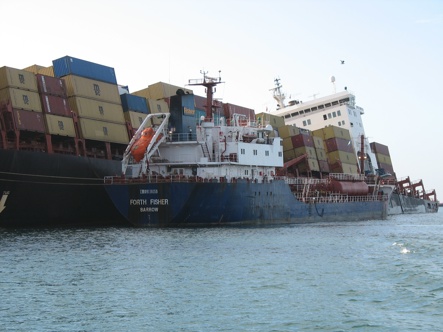
More case studies
 Read article
Read article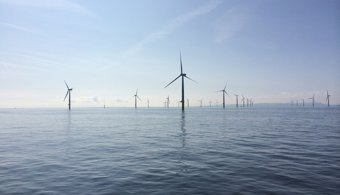
James Fisher increases offshore wind asset operations and maintenance (O&M) portfolio
Read article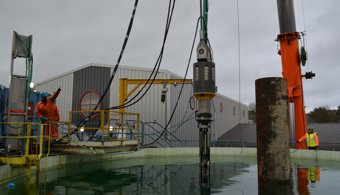
JFD hosts a dive tank test and demonstration
Read article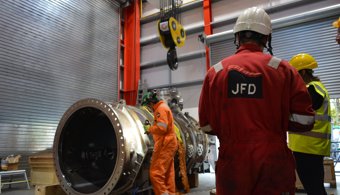
JFD tests a submarine hull at their National Hyperbaric Centre
Read article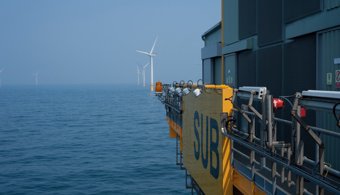
Turnkey operations and maintenance at Greater Gabbard
Read article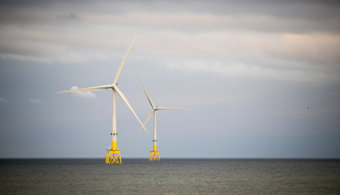
James Fisher Renouvelables conducts UXO identification at RTE’s Saint-Nazaire Offshore Wind Farm
Read article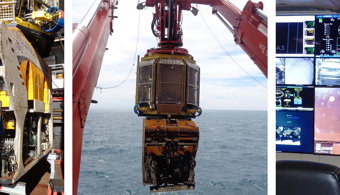
JFD conduct two remote audits for Heerema Marine
Read article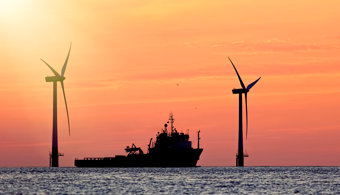
James Fisher Renouvelables selected by RTE to identify unexploded ordnance (UXO)
Read article



 Annual Report 2023
Annual Report 2023